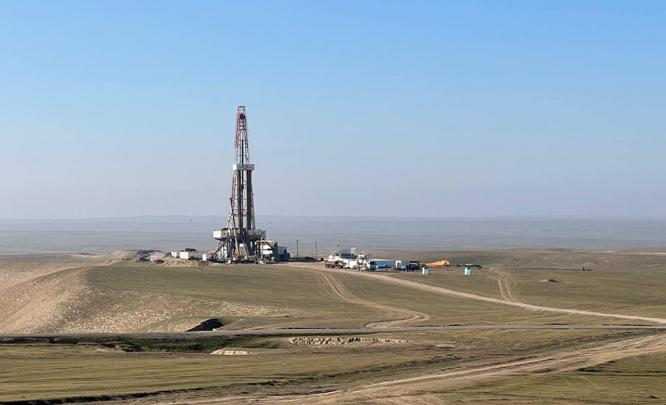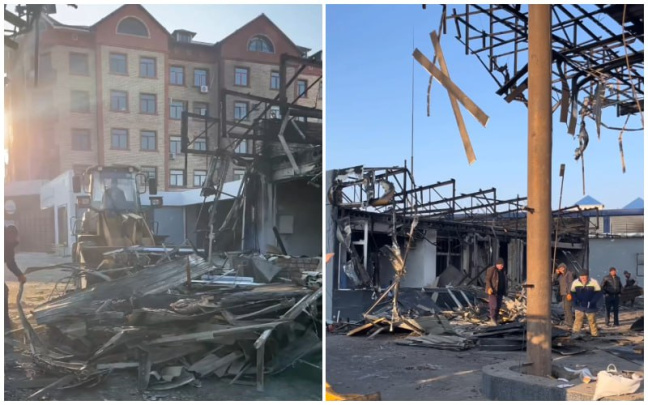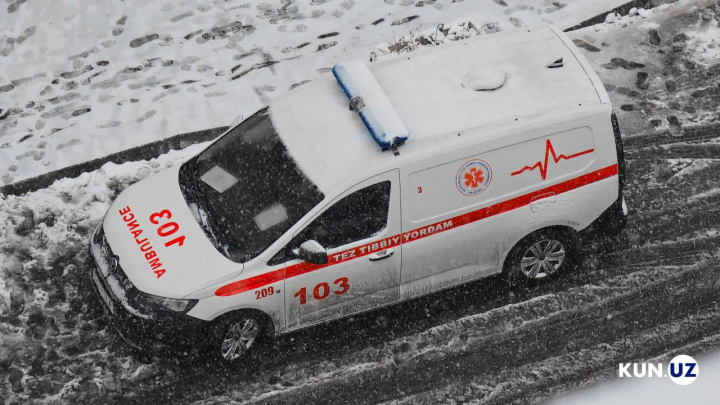"Gas shortages, high prices, and long lines at filling stations: Energy Ministry official blames ‘unusual weather’ for systemic issues
With the onset of winter, operating hours of methane filling stations have been restricted again, and lines now stretch for kilometers. In this situation, the press secretary of the Ministry of Energy, Hasan Toshkhojaev, advised drivers to switch to gasoline or buy an electric car in response to Kun.uz's questions. He attributed the current situation to the weather: "December is not usually this cold, but this year we are experiencing an unusual climate."
Winter comes to Uzbekistan every year, and just as it is normal for winters to be cold, energy issues during winter have become just as predictable. Gas shortages, pressure drops, and energy deficits are observed everywhere — from methane filling stations to household gas supplies.
This year, too, with the onset of cold weather, the operating hours of methane filling stations have been restricted. The priority is to ensure gas supply to households and social facilities. Meanwhile, long queues have formed at methane stations, and drivers are frustrated by the lack of both gas and gasoline.
Notably, the Ministry of Energy has once again pointed to "anomalous" weather conditions this year. While Hasan Toshkhojaev did not use the word "anomalous" in his conversation with Kun.uz, he did mention the "unique climate" as a reason for the current situation.
"Yes, winter always comes, but compared to previous years, December has not been this cold before. This year, we are experiencing a unique climate. It has been cold since the start of December, and forecasts indicate this will continue until the end of the month. Next week is expected to be even colder," he said.
The minister noted that preparations for winter were made based on three scenarios, all focused on ensuring heating for households and social infrastructure as a priority.
Regarding the closure of methane filling stations, Toshkhojaev explained: "Each region determines the hours of operation based on its own capabilities and weather conditions."
He also mentioned that if a methane station is closed, drivers have alternatives: "They can simply switch to gasoline. We have doubled the supply of gasoline to the market, and if necessary, we can triple it. There is no shortage; reserves are sufficient."
In Tashkent, gas stations are operating only at certain hours, with some remaining closed even during the day. Drivers, including those who rely on their vehicles for a living, are frustrated.
"We've been waiting since morning, hoping for gas, but no one has given us any explanations. Sure, they're ordinary people like us, and they'll supply gas when told to, but we've been to several stations, and neither gas nor gasoline is available. Queues for AI-80 gasoline stretch for kilometers, and AI-90 and AI-92 are too expensive. We're losing both income and time, and it's testing our patience," drivers say.
Uzbekistan's gas production has been declining year by year, yet gas exports continue. In this situation, Uzbekistan began importing gas from Russia for the first time last year. According to Toshkhojaev, the country is currently receiving as much gas as the pipelines can handle.
"Gas imports are increasing. We used to be a gas exporter, but now we are becoming an importer. Why? Because of population growth, economic development, and the increase in industrial enterprises. Demand is rising, but unfortunately, production is declining year by year," he said.
Toshkhojaev emphasized that temporarily restricting methane stations while increasing gasoline supply is the most reasonable way to get through winter without major disruptions.
"As much gas as possible is being imported through the pipelines. Since October 2023, we started importing gas from Russia for the first time. The annual volume is planned to be 3 billion cubic meters, and this may increase in the future. Work is underway in this direction. In addition, we are continuing to develop gas fields domestically, such as in Ustyurt and other regions. Once these fields become operational — hopefully within the next 3–4 years — we can begin extracting gas from them and gradually reduce imports," he noted.
Toshkhojaev suggested that drivers could opt for gasoline if gas is unavailable and mentioned electric cars as another alternative.
"Winter comes for all of us — it’s a season, not a celebration. Whether you're a taxi driver or anyone else, people need to understand the situation. We’ve increased the supply of gasoline. If you can’t use methane, you can use gasoline. No one is stranded.
"Second, we now have many electric cars coming into the country, even in the regions. Charging electric vehicles is much cheaper. While filling a gasoline tank might cost 200,000–300,000 UZS, charging an electric car costs only 60,000–90,000 UZS. However, when you order a taxi on Yandex with an electric car, the driver won’t say, 'It's cold today, so instead of 60,000, I’ll charge you 30,000.'
"What I’m saying is, not all of our people, but some need to understand the current situation. If we didn’t supply gasoline and just closed the methane stations, people might ask, 'How will I feed my family?' But given the situation — whether it’s a week or 10 days (only God knows) — our nation needs to unite and support each other. That is the best approach.
"We’ve increased the gasoline supply. If people are inconvenienced by waiting in line at methane stations, they can buy gasoline and continue driving without issues. They also need to think about others — maybe someone has a child or a sick person at home. It's better to wait a little at a methane station than have a cold house," he said.
Toshkhojaev also addressed the misinterpretation of a statement made by Minister Jurabek Mirzamakhmudov a year ago. The minister had mentioned that by the following year, Uzbekistan would be able to fully meet its domestic needs, but this referred to electricity generation.
"Uzbekistan currently has the capacity to fully meet its electricity generation needs, as mentioned by the minister. There are no issues with generation. Power outages in some areas are related to problems in distribution networks, many of which have been in use for 30–40 years. Replacing these is not a one-day job," Toshkhojaev explained.
It is worth noting that reports have surfaced about industrial enterprises around Tashkent being disconnected from gas supplies. The Ministry of Energy spokesperson stated that he was unaware of this and pointed out that responsibility for this lies with Hududgaztaminot JSC. However, according to relevant regulations, the Ministry of Energy is accountable for such matters.
Here are five alternative titles that offer a critical perspective on the Ministry of Energy's statements and actions regarding gas shortages, high petrol prices, and long queues:







